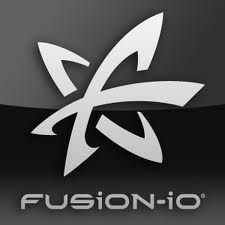If you work in the tech industry, chances are you have heard of Solid-State Drives (SSDs) and know they use flash-based storage. Flash has been around forever on cell phones, but for the last several years it's been used for other high-speed storage applications on OEM design-in module cards for servers.
One of the more prominent flash-based SSD pioneers is a Utah-based company, Fusion-io. They have a lot of workarounds built-in and perfected to manage the cons of flash-based storage while still taking advantage of the pros. Let's face it, SSDs will probably obliterate the rotating hard-disk-drive (HDD) storage market over the next couple of years, and in this article I will tell you why.
Some of the main applications for SSDs is high-speed server performance such as Business Intelligence Software for Big Data Analysis and their need for speed with high-speed analytical database engines. Other huge driving applications include Software Programmers who love it because it is non-volatile and fast access, and companies using VMWare (virtual machines) clamor for it.
Companies like Facebook, Google, and Yahoo which spend 60% of their capital expenditures on powering, cooling, and storing large server banks to give fast access to their customers who come to query data can realize huge savings because SSD density of storage takes up a ratio of 20 to 1 less rack space than doing the same job of servers with Hard Disk Drives (HDDs) for storage.
In the laptop market, it is equally desirable to have super fast, low power requirements, cool, and small storage, but laptops need to be redesigned to accommodate a hot swap and transfer of data before the flash-based SSDs fail, because fail they will.
Here is a list of pros and cons of SSDs for those of you less familiar with this technology so you can understand why you need to buy it from a manufacturer who has worked around the downsides of flash for SSDs:
SSD Pros:
- Non-volatile, when the power goes out you don't lose your data
- Cool, many companies with large server banks like google, facebook, yahoo for example spend a lot of money (up to 60% of their operating costs on powering and cooling servers and HDD storage solutions)
- It's inexpensive when you factor in the huge savings in cooling and powering up to 20 times fewer devices. Factor in rackspace and real estate needed when housing servers with HDD, Disk Arrays (like a jukebox of Hard Disk Drives) or RAIDS (Random Access Integrated Disk Storage), although SSDs are about 30% more expensive up front
- It's definitely green, requires way less energy than Hard-disk-drive-based solutions not only in-and-of-itself but in way fewer servers because the performance bottlenecks are eliminated
- Faster queries. This is the benefit I'm going to focus this article on, since it is storage that is finally fast enough to keep up with processor speeds. SSDs can speed up nearly all server applications by 3x. Sometimes the speedup can be as much as 40x.
SSD Cons:
- Flash-based memory has "bad sectors" so your hardware vendor needs to address it with software that allows writes to skip white out sections that are not usable like Fusion-io does.
- Flash has a shelf life, meaning it will fail. Definitely. No doubt about it. Unlike arm-controlled-disk-based storage, it has a not-reliably predictable shelf life, so, again, your hardware vendor needs software to warn you to replace it, like Fusion-io does. This is managable for an IT manager with a server with multiple slots and multiple servers, but laptops with Flash will need to do the same thing.
- Flash used in SSDs is a low-cost-commodity-based product. The flash manufacturer's end-of-life the materials more quickly than the OEMs can co-brand these flash-based memory devices, causing everyone in the supply chain a lot of headaches.
- If you go with flash-based SSDs from the wrong vendor, you can lose all your data (since your last backup) because there’s no warning your device is about to fail.
Some Integrators claim you can use extra memory with HDD to get the speed of flash-based SSDs and save the extra 30% in expense, but Forbes Right Now 2012, agrees with me that SSDs are the future.
Added expense didn’t stop people from moving to cars from horses or adopting the thousands of other technology improvements that make our lives easier, more productive, and that eventually become more cost effective.
Some customers don’t realize the performance bottle necks they are getting using HDDs and just keep buying more servers to try to get performance improvements.
Perhaps these integrators recommending HDDs are not comfortable selling less servers because it eats into their own profits. Perhaps they are defending their old recommendations of HDD over SDD because they don't want to tell their customers they steered them the wrong way.
According to Storagetech 2011: “In most multi-user database driven applications today the factor which limits performance is not server MIPs but random disk access speed. In the past 20 years disk throughput has increased by a factor of x100, but the random access time has improved by a much smaller rate of only five times.
In the same 20 year period - processor clock speeds have risen from 33MHz to over 3GHz. The data bus widths have increased from 32 bits to 64 bits and new processor chips include from 2 to 8 internal processors. That's a x400 to x1,600 increase in data demand for a typical server.
Many users have discovered that when they need faster performance they reach a bottleneck or ceiling which cannot be improved by simply adding more processors or memory. But by adding high speed SSDs to critical storage segments they can get application speedups from x2 to x40. SSDs can deliver more than 1,000 times the random access speed of hard disk based systems.
If deployed correctly users can speed up their applications and save money by needing less servers, less software licenses and less systems to support.
The customer value proposition of Server Acceleration is that SSDs double the speed of enterprise server applications at a price which is much less than buying another 10 to 100 servers."
Eliminating bottleneck storage access speeds is promising for all applications and therefore, SSDs get my vote provided they are deployed with the right precautions. Fusion-io OEMs their SSDs to all the major manufacturers like HP, IBM, and Dell, so you can get the most reliable, smallest, coolest, and fastest storage from your vendor of choice.
What do you think about SSDs vs. HDD? Have you reduced your Rackspace by 80% like facebook and google using SSDs? Who built your SSDs?
Sources: Storage-tech 2011, Fusion-io, Forbes Right Now 2012, Jaspersoft

Bay Area Inbound is a full-service Inbound Marketing Agency in SF that specializes in content creation and getting you the leads you need to significantly increase company revenue.
Bay Area Inbound is a Hubspot Value-Added Reseller. Hubspot makes Integrated Inbound Marketing Software and is the #2 Fastest Growing Software Company in the World.
For more information on getting traffic to your site and generating the leads you need, contact laurie@bayareainbound.com or 510-543-7593.
For more tips and tricks, download our free whitepaper by pressing the orange button below:

